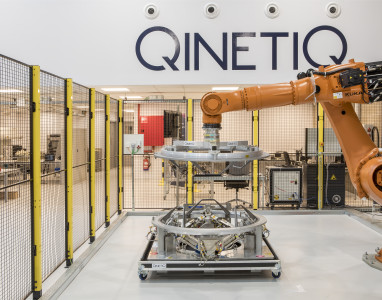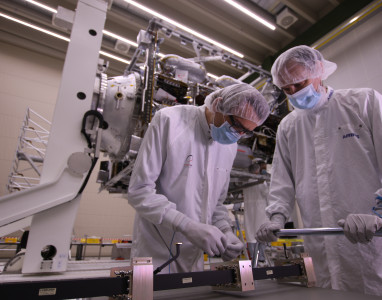Labour productivity
| Euro / person employed | |
|---|---|
| Prov. Antwerp | 162.9 |
| Luxembourg | 207.6 |
| Brussels | 181.6 |
| Paris | 176.1 |
| European Union | 100.0 |
An indicator for labour productivity is the gross domestic product per employed person. In order to make a comparison between different countries possible, the gross domestic product is expressed in ´purchasing power standard´ (purchasing power per capita).
The labour productivity in the province of Antwerp is at the top of the EU.
Labour productivity in Antwerp is lower than in the economic centres of Luxembourg, Brussels and Paris. It is however higher than any Dutch region except for Amsterdam and any French region other than Paris.
Like the rest of Flanders, Antwerp is a Dutch-speaking city. The average Fleming, however, has a good command of several languages, most commonly English and French. However, many also have a command of German, Spanish and/or other languages. From an international perspective, language skills in Flanders are unique.
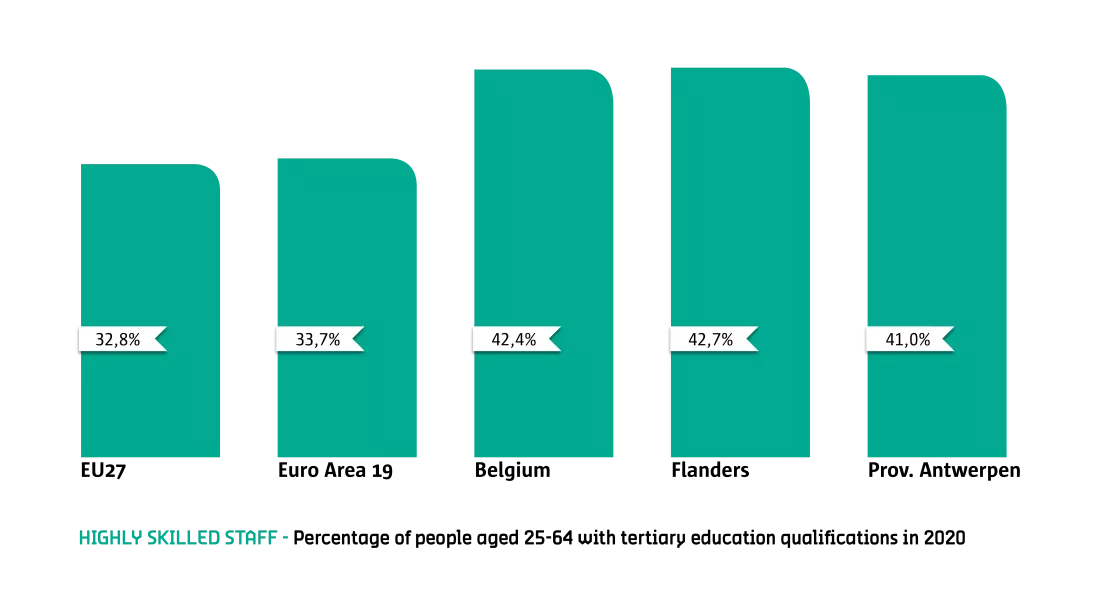
Antwerp’s workforce is highly trained. Over 1 in 3 people aged between 25 and 64 have graduated from tertiary education. One university and several colleges in Antwerp educate nearly 50 000 students per year.
The university’s key research domains are in the fields of harbour & logistics, sustainability, science & engineering, and medical sciences.
In addition, Antwerp is home to a number of specialised knowledge centres linked to the university or the colleges.
Some differences between major cities underline this point:
| Degree higher education (in%) | Region |
| 41,0 | Province of Antwerp |
| 41,1 | Eindhoven region |
| 34,6 | Bayern |
| 32,1 | Lille |
Source: Eurostat, 10/2020
Accreditations & Rankings
The University of Antwerp was the first Belgian university to receive the renowned and prestigious international AACSB accreditations as well as AMBA for its MBA-degree. Its executive MBA program moved up 10 places to rank 45 worldwide and is n.1 in the Benelux. It is the highest ranking ever achieved by a Belgian business school. Also its Master in Management (29th place) is ranked in the yearly Financial Times rankings. The University of Antwerp attained 13th place as well in the top 50 universities ranking 2021.
The university’s key research domains are in the fields of harbour & logistics, sustainability, science & engineering, and medical sciences. In addition, Antwerp is home to a number of specialised knowledge centres linked to the university or the colleges.
Frontline Research Domains
- Drug Discovery and Development
- Ecology and Sustainable Development
- Harbour, Transport and Logistics
- Imaging
- Infectious Diseases
- Materials Characterisation
- Neuroscience
- Socio-Economic Policy and Organisation
- Urban History and Contemporary Urban Policy
Various institutions
Overview of Antwerp institutions for higher education
|
University |
Universiteit Antwerpen |
|
|
Business School |
Antwerp Management School |
|
|
Colleges |
AP Hogeschool Antwerpen |
|
|
|
Karel de Grote-Hogeschool Antwerpen |
|
|
|
Thomas More Antwerpen |
|
|
|
Instituut voor Tropische Geneeskunde |
|
|
|
Hogere Zeevaartschool Antwerpen |
Next to these also the highest ranked Belgian university, Katholieke Universiteit Leuven, has several colleges in the city.
A unique concentration of study programmes
Antwerp differentiates itself with its unique concentration of study programmes within a relatively small area. Within a 204 km2 radius, students can choose from more than 200 study programmes offered by the institutions of higher education based in the city, in various disciplines such as economy, history, medical sciences and much more. However, what makes Antwerp extra special is the additional range of (often internationally) renowned programmes in specific knowledge domains related to the clusters of the Antwerp economy.
| Sector | Educational programme or course | University or university college |
|---|---|---|
| Port and logistics |
Academical programme Nautical Sciences and the professional programme Marine Engineering |
Antwerp Maritime Academy |
| Sustainable chemistry | Bioscience Engineering programme | University of Antwerp |
| Diamonds | Course ‘from rough to brilliant’ | Organised by the Fonds voor Diamantnijverheid, HRD Antwerp, Antwerp World Diamond Centre, City of Antwerp and the Flemish Employment and Vocational Training Agency |
| Digital innovation | Postgraduate programme in ‘Internet of Things’ | University of Antwerp, University of Ghent and Free University of Brussels |
| IoT technician training | Artesis Plantijn University College (AP) | |
| Creative Technologies and Entrepreneurship Programme | Karel De Grote Hogeschool | |
| Fashion | Fashion programme | Royal Academy of Fine Arts in Antwerp Artesis Plantijn University College (AP) |
| Master in International Fashion Management | Antwerp Management School | |
| Product development | Product Development | University of Antwerp |
| Health | Several programmes specialised in infectious diseases and healthcare in developing countries |
Institute for Tropical Medicine |
| Nursing programme | Artesis Plantijn University College (AP) |
Thanks to these study programmes, the Antwerp region benefits from a large pool of highly trained and specialised talent that helps shape the future of the Antwerp economy. Managers within companies often recognise a flexible, internationally-focused mentality among the talent in Antwerp that, combined with their multilingualism and good training, enables them to perform well in an increasingly dynamic, global context. Entrepreneurial talent also has every opportunity to flourish at an early stage in Antwerp. For example, TAKEOFFANTWERP, an initiative organised by the Antwerp University Association, City of Antwerp, Chamber of Commerce VOKA and student organisation SYNC, offers various forms of support to starters, including a specific status as a ‘student entrepreneur’.
| Total | Diploma | Profession | |
|---|---|---|---|
| Belgium | 3 300 | 2 918 | 1 891 |
| Flanders | 1 931 | 1 693 | 1 135 |
| Antwerp province | 536 | 462 | 314 |
Over 15,000 people in the province of Antwerp work in research and development. That is over a quarter of all the people in Flanders employed in R&D.
| Number | Number FTE | % Active population | % Total employment | |
|---|---|---|---|---|
| Belgium | 113 576 | 77 520 | 2.31 | 2.53 |
| Flanders | 70 035 | 46 069 | 2.38 | 2.51 |
| Antwerp province | 18 172 | 12 612 | 2.23 | 2.38 |
The province of Antwerp devotes 2.5 billion euros to research and development. That is 24% of the Belgian total and 39% of the Flemish total, which puts Antwerp in first place in Flanders.
| Million EUR | EUR / Resident | % GDP | |
|---|---|---|---|
| Belgium | 10 118 | 900.4 | 2.43 |
| Flanders | 6 433 | 996.9 | 2.66 |
| Antwerp province | 2 477 | 1 363.2 | 3.12 |
The province of Antwerp is the frontrunner when it comes to the number of patent applications, with its 129 patent applications making up 25% of all such applications in Flanders. Over half of these patent applications were made by companies in the district of Antwerp.
| Total | High tech | |
|---|---|---|
| Belgium | 1 279 | 318 |
| Flanders | 877 | 250 |
| Antwerp province | 263 | 96 |
| Antwerp district | 183 | 77 |
Innovation
The Flemish region is a strong innovator according to the Regional Innovation Scoreboard 2019 of the European Commission. Antwerp scores high in terms of budget spent on R&D per citizen compared to other European non-capital cities (source Eurostat - 2020).
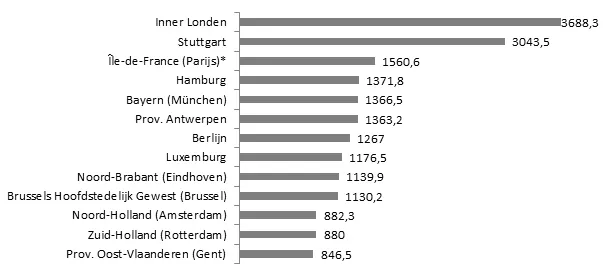
Antwerp has a large population of people who graduated with a degree in Science or Technology (source Eurostat - 2016).
This graph shows the percentage of the active population that has a degree in Science & Technology or works in this domain.
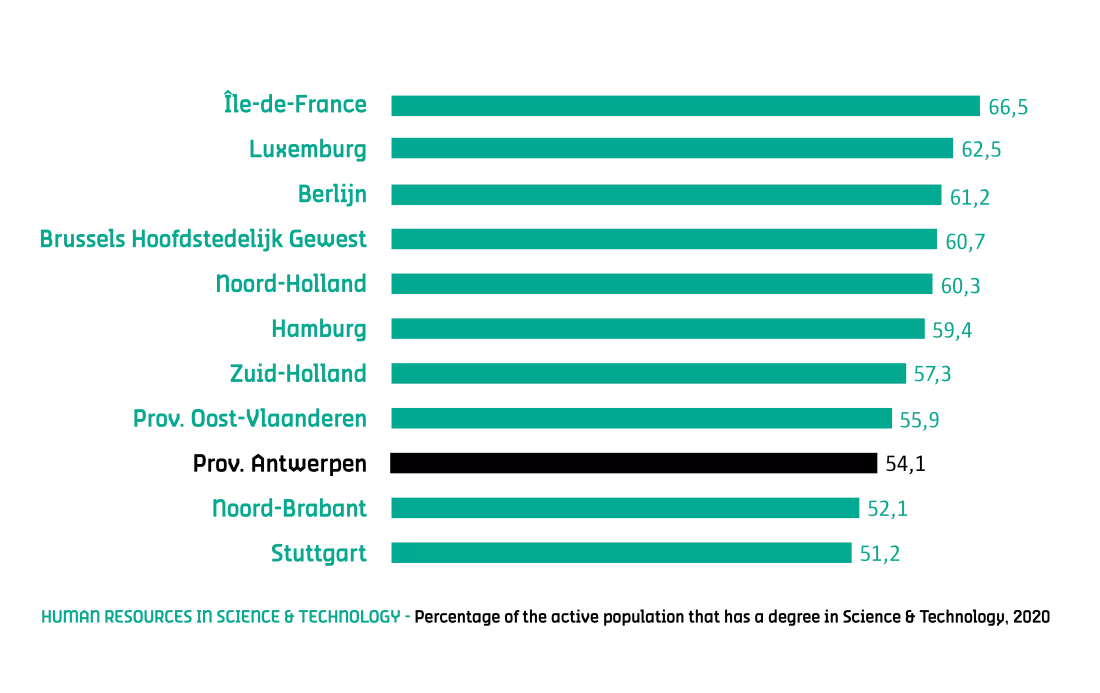
Labor cost
The labour cost in Antwerp lies 20% lower than Paris and 15% lower than London, even though Antwerp has one of the highest productivity ratio's and education-rates in the world.
This graph shows the average labour cost per FTE in companies with more than ten FTE's in the following sectors: industry, construction & services.
| Paris | 68 382 |
| Brussels | 67 818 |
| London | 63 328 |
| Rotterdam | 58 989 |
| Hamburg | 56 310 |
| Antwerp | 54 362 |
